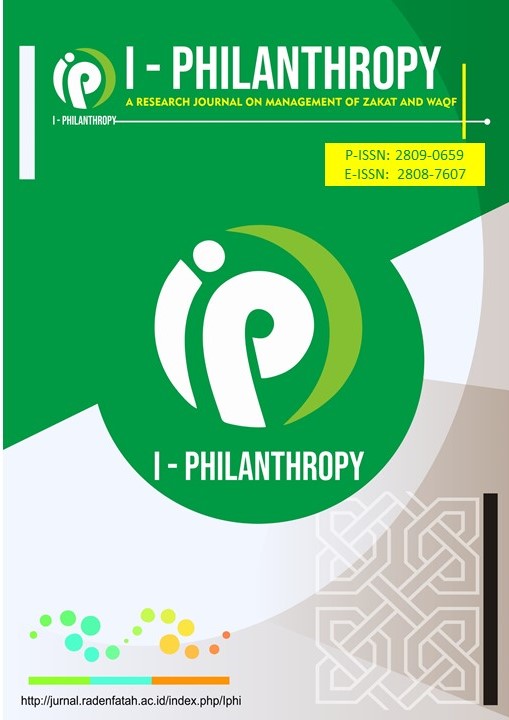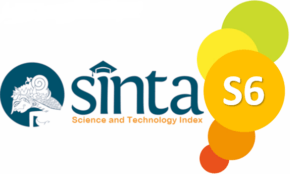Pengelolaan Aset Wakaf Dalam Regulasi Perwakafan Di Indonesia
DOI:
https://doi.org/10.19109/iphi.v5i1.28670Keywords:
Indonesian Waqf Board; Regulations; Waqf AssetsAbstract
In Indonesia, waqf has become one of the main tools for empowering society, both in creating land, buildings and other productive assets. In terms of waqf regulations, management of waqf assets is a very important aspect, because it requires a clear legal basis to ensure maximum utilization. The research method applied is literature study (library research), with the main data source obtained through systematic search and analysis of scientific works, books, as well as articles and journals related to waqf regulations in Indonesia. The findings from this research show that waqf regulations in Indonesia play an important role in improving community welfare and supporting social and religious development. The Indonesian Waqf Board (BWI) has an important role in managing and supervising waqf in this country through guidance, regulation and supervision carried out by BWI. However, in waqf management, there are still big challenges such as low public awareness regarding the importance of productive waqf, and the need for more optimal management and utilization of waqf assets.
References
Chasanah, Kama Mir’atul, dan Ghufron Maksum. “Regulasi Perwakafan Di Indonesia Dalam Perspektif Statute Approach”. Tasyri’ : Journal of Islamic Law. Vol. 1 No. 1 (2022), h. 105–29. https://doi.org/10.53038/tsyr.v1i1.7.
Furqon, Ahmad dkk. “Manajemen dan Akuntansi Aset Wakaf”. 2021.
Hasanah, N., Sulistya, I., & Irfany, M. I. (2020). Strategi pengelolaan wakaf uang oleh Badan Wakaf Indonesia (BWI). Al-Awqaf: Jurnal Wakaf Dan Ekonomi Islam, 13(1), 39-58.
Hadi, S. (2020). Dimensi Ekonomi Produktif Dalam Regulasi Wakaf Di Indonesia. TAWAZUN: Journal of Sharia Economic Law, 3(2), 189-202.
Hidayat, Ahmad Riza et al. “Manajemen Wakaf Dalam Perspektif Hukum Islam Dan Undang-Undang No. 41 Tahun 2004”. Filantropi : Jurnal Manajemen Zakat dan Wakaf. Vol. 4 No. 1 (2023), h. 14–26. https://doi.org/10.22515/finalmazawa.v4i1.8029.
Kasdi, Abdurrahman. “Peran Pemerintah Dalam Regulasi Perundang-Undangan Wakaf”. ZISWAF : Jurnal Zakat Dan Wakaf. Vol. 2 No. 2 (2015), h. 362–79.
Kasdi, Abdurrohman. “Pergeseran Makna Dan Pemberdayaan Wakaf (Dari Konsumtif Ke Produktif)”. Jurnal Zakat dan Wakaf. Vol. 3 No. 1 (2016), h. 2.
Putra, Trisno Wardy, dan Devita Ayu Fildayanti. “Revitalization of Waqf Management for Social Economic Development of East Luwu”. Al-Risalah. Vol. 12 No. 2 (2021), h. 297–311. https://doi.org/10.34005/alrisalah.v12i2.1403.
Nasution, M. E., & D¹, P. (2019). Peran Badan Wakaf Indonesia (BWI) dalam Pengembangan Wakaf di Indonesia. Jurnal Al Awqaf-Vol. 01 No. 01 Desember 2008, 1, 1.
Riyanto, Riyanto. “Optimalisasi Pengelolaan Wakaf (Studi di Kabupaten Demak)”. Al-’Adalah. Vol. 14 No. 2 (2018), h. 333. https://doi.org/10.24042/adalah.v14i2.1967.
Sup, Devid Frastiawan Amir. “Wakaf Kontemporer di Indonesia dalam Perspektif Hukum dan Fatwa”. Jurnal Hukum Ekonomi Syariah. Vol. 4 No. 2 (2021), h. 237. https://doi.org/10.30595/jhes.v4i2.11093.
Yenni Samri Juliati, dan Maftah Rizki Addin HRP. “Wakaf dan Dasar Hukum Wakaf”. Jurnal Manajemen Dan Bisnis Ekonomi. Vol. 2 No. 2 (2024), h. 63–76. https://doi.org/10.54066/jmbe-itb.v2i2.1431
Downloads
Published
Issue
Section
License
Copyright (c) 2025 Muhammad Ryas Fatiha Kesuma, Suhairi Yusuf

This work is licensed under a Creative Commons Attribution-ShareAlike 4.0 International License.
Copyright Notice here












